Your Clinic
SET A LOCATION
Your Clinic
SET A LOCATION
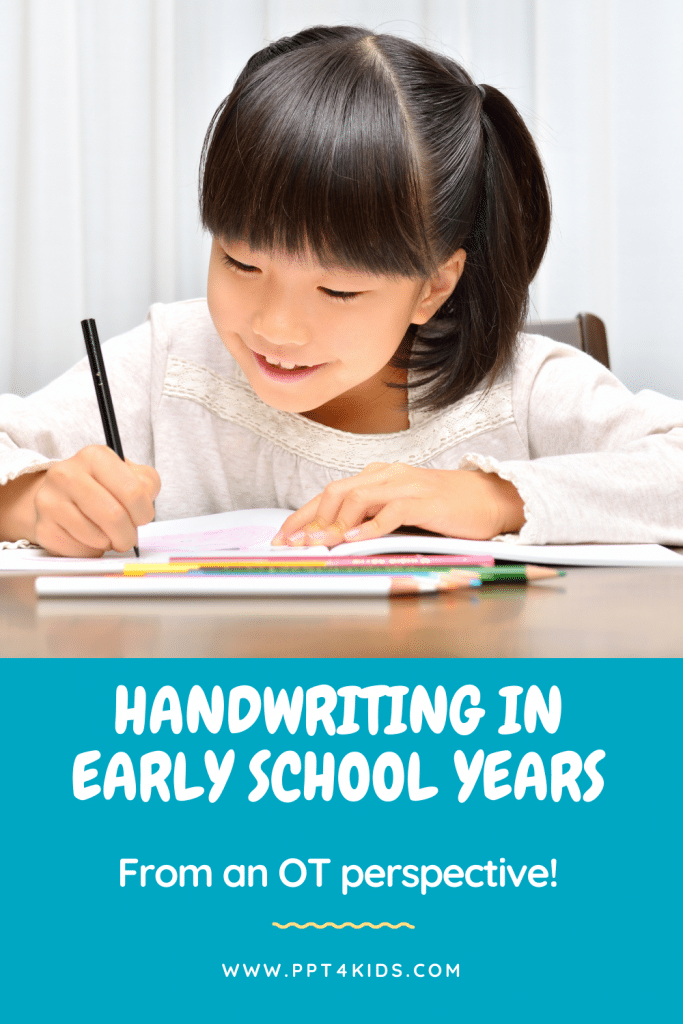
Remember: OTs are responsible for assessing and addressing a child’s fine motor skills , which includes how they use their fingers and hands, as well as strength in the hands and fingers. They also look at bilateral hand skills , which is the ability to use both hands together. OTs also look at visual motor skills , which is how a child uses their hands and eyes together to execute tasks. Occupational therapists are also always taking into account if a child can sit still, while holding their body upright at a table top, and their ability to focus on the task of writing.
Children of preschool age are developing their hand strength and skills to prepare them for writing. OTs engage children in developing fine motor skills through fun activities and play which engage all their senses, which is referred to as multi sensory learning. Often therapists use playdoh to roll and squish to get little fingers and hands moving. Cutting and gluing, using real school, help to build strength and arches in the hands. Tearing paper and sticker activities are great for developing and refining pincer grasp and bilateral hand skills. Occupational therapists like to use different types of textures and crafts to help little hands build strength and develop for precise movement needed for writing.
Children in this age group are learning to identify the letters and they need to learn how to draw foundational shapes. These are vertical and horizontal lines, circle, cross, square, diagonal lines, triangle, and intersecting diagonal lines (X). These tasks are the basis for learning to write.
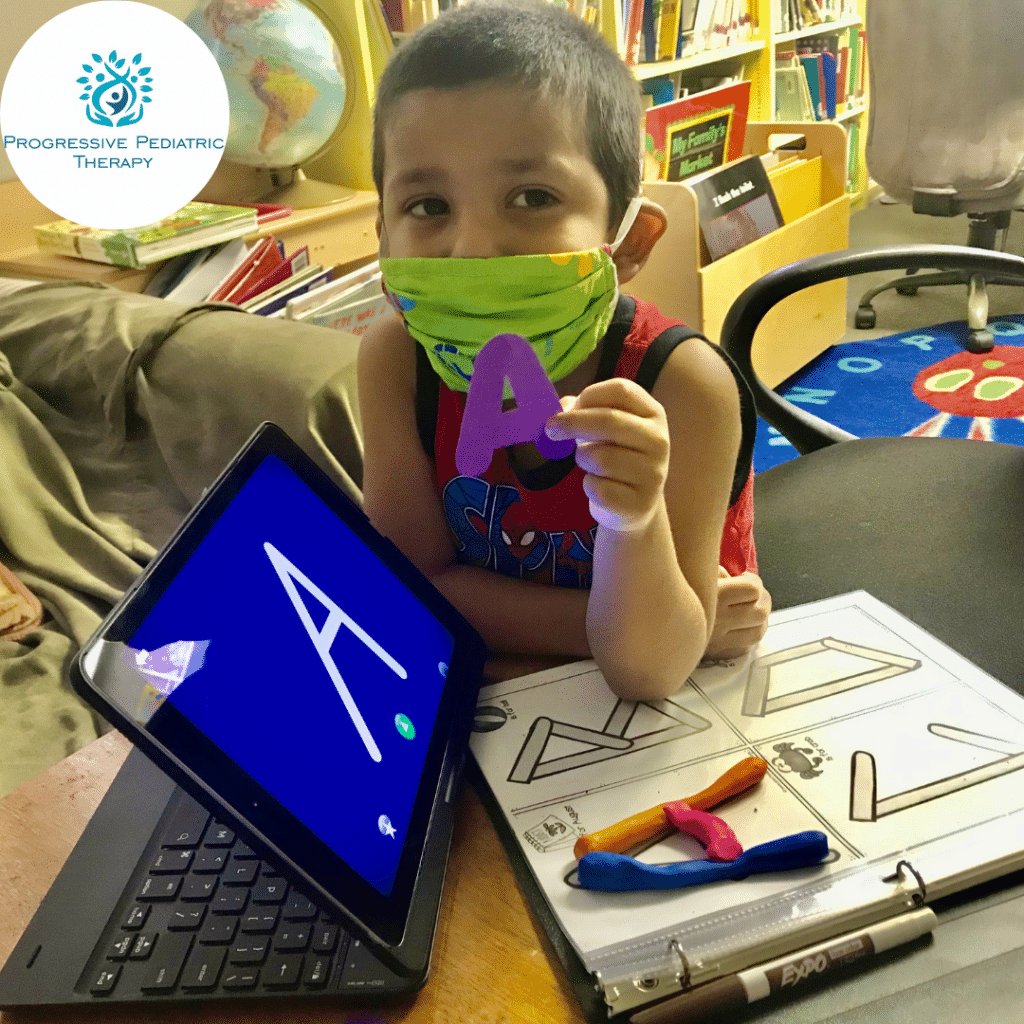
Kindergarten aged children continue to work on developing fine motor skills for an appropriate writing grasp. They are often learning to write upper case letters first, because there are less strokes used to form them. They are also learning to write their name. OTs will focus on fine motor activities, letter formation, using space they are given for writing tasks, which is usually 1 inch lines or boxes.
It is important to remember that handwriting is a progressive skill that relies on the development of earlier skills. Children who have fine motor difficulties may need to continue working on earlier skills until they are ready for a more mature skill.
As kids move up in the early elementary years into first and second grade, children are strengthening their letter formation skills, and they are learning about placement of lowercase letters in relation to each other. They are also starting to write within a smaller space, usually ½ inch lines, and are learning about spacing within words and between words. These skills require a combination of fine motor skills and visual perceptual skills. In these years, OTs are addressing fine motor skills, postural skills needed to sit and write, and attention. OTs are often addressing visual motor skills as well, which includes a child’s visual perceptual abilities to perceive, control their eyes, and how objects relate to each other in space ( spatial awareness).
From third to fifth grade, the writing demands on children increase with the years. So while OTs continue to address fine motor abilities, visual motor skills, posture, self-regulation, and attention, they also begin to look at speed and endurance for writing tasks, as well as switch visual attention between the board or a book and the child’s notebook or paper. During this time, children start to write in much smaller spaces, like traditional notebook paper. This allows them to write quicker.
In addition to occupational therapy services to address your child’s handwriting difficulties, families can provide support at home too. Talk to your therapist about providing a fine motor home exercise program, which can be performed daily followed by 5 minutes of supervised handwriting practice to carryover skills addressed in their therapy session.
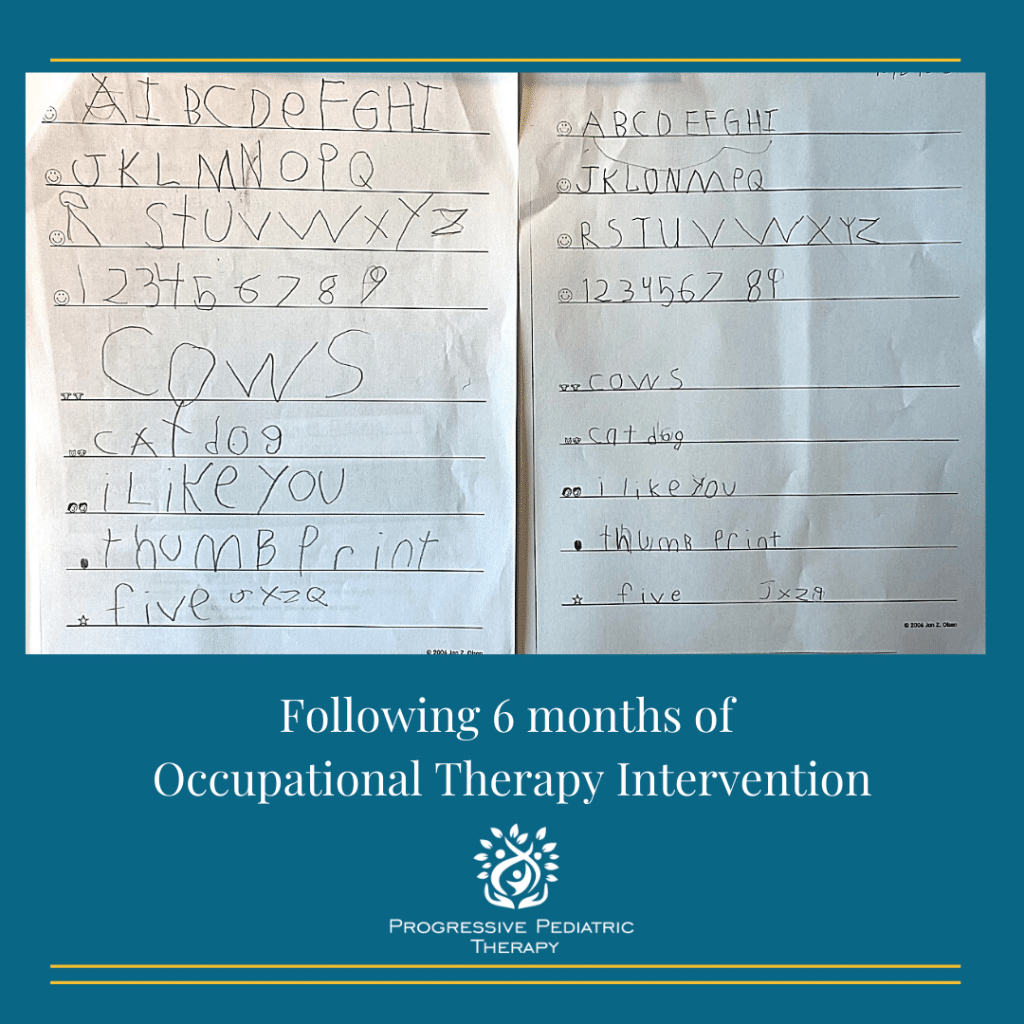
The post Occupational Therapy in Handwriting for Early Education and Elementary Years. appeared first on PPT4Kids.






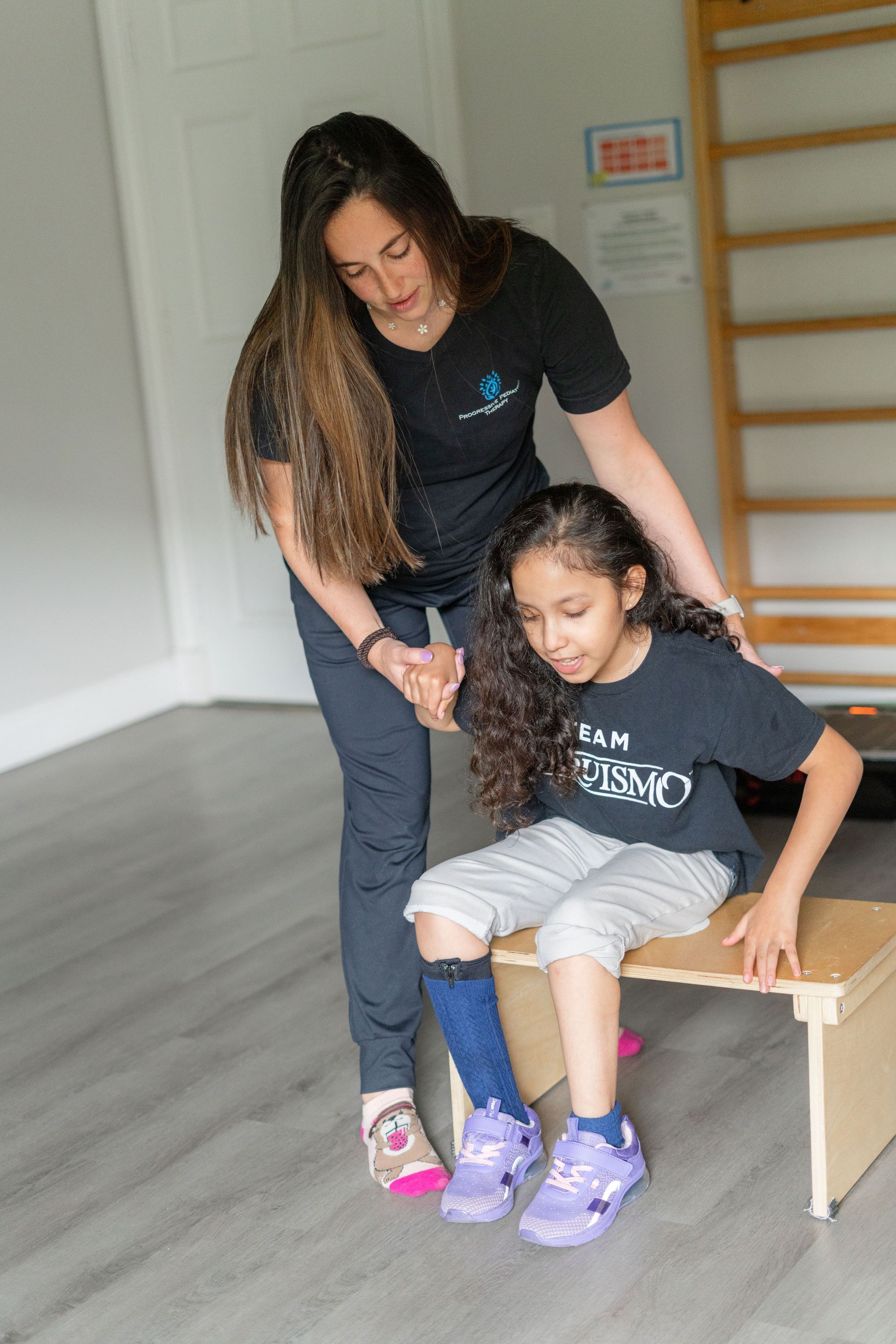
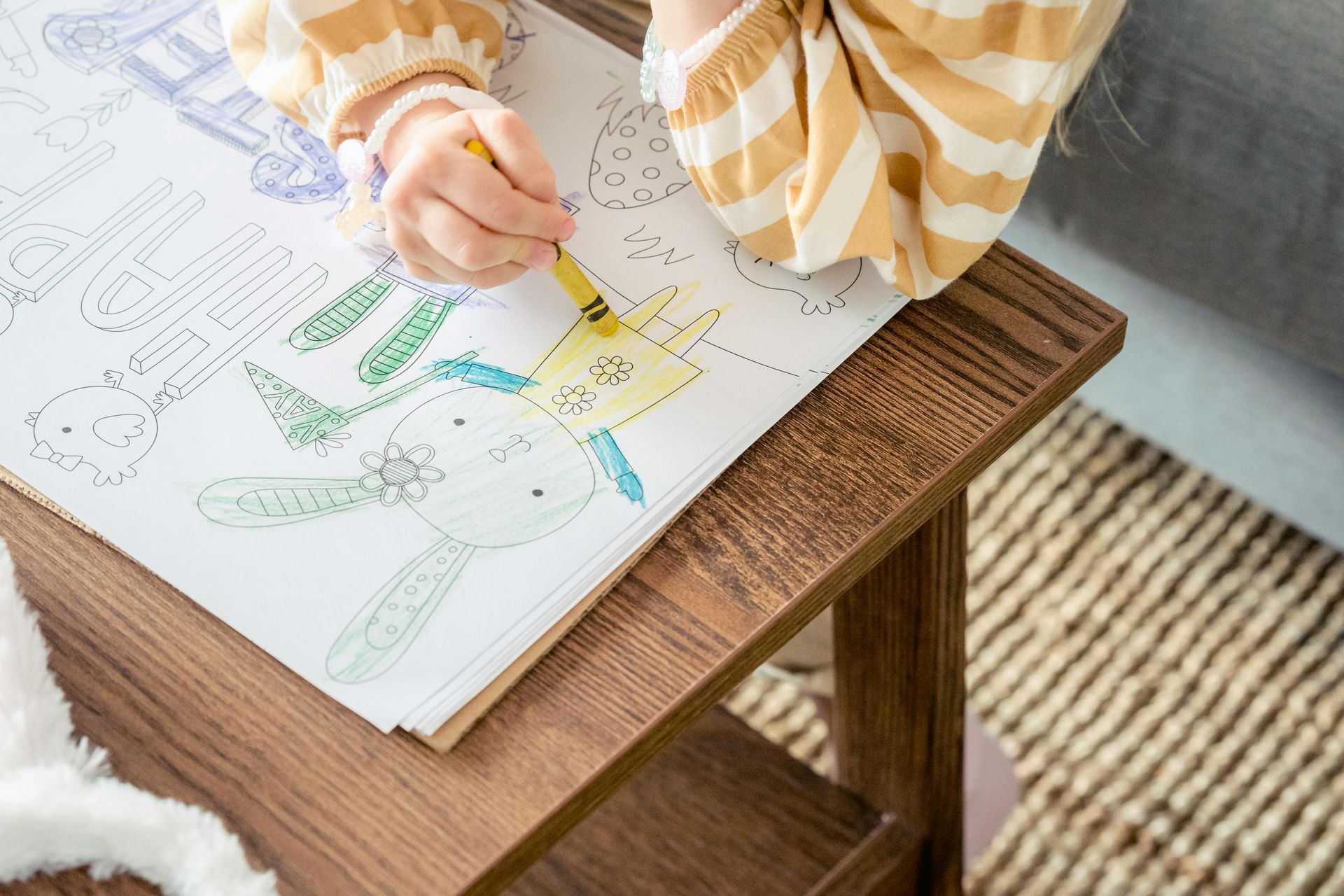
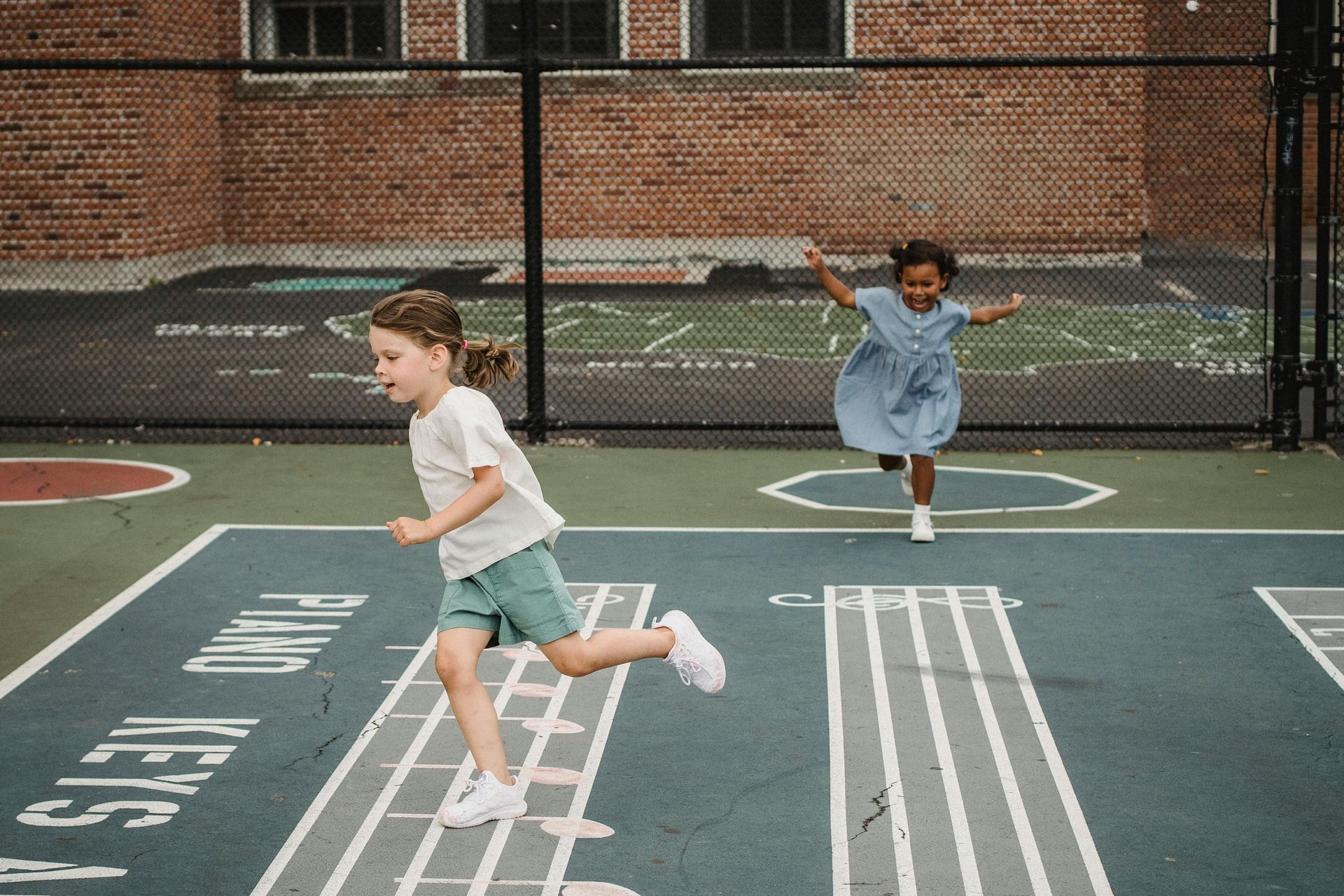
We empower children, families, and the community to learn, grow, and celebrate every child's unique abilities.
Quick Links
Contact Details
Phone: 561-376-2573 | 561-918-0190
Fax: 561-218-4939
VIP Concierge: 561-717-1764
Clinic Locations
All Rights Reserved | Progressive Pediatric Therapy, Inc. | Privacy Policy | Terms of Service
Site by Spearlance